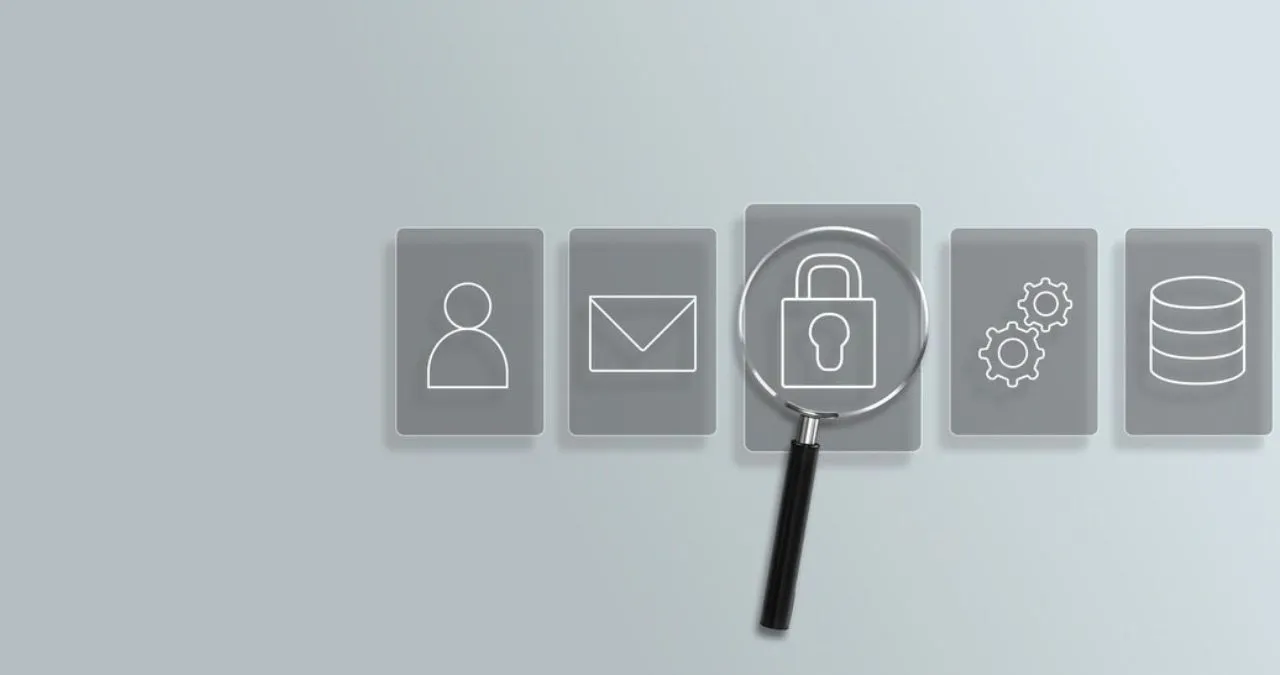Everything You Need to Know About Anonposted: The Digital Revolution1

Anonposted The world of digital content is ever-evolving. New terms and concepts seem to emerge every day, each one sparking interest and leaving a mark on internet culture. One such term that has recently gained traction is “anonposted.” In this article, we’ll explore what anonposted is, its significance in today’s online world, and the role it plays in the ever-changing landscape of digital interaction. Whether you’re a seasoned internet user or someone who’s just starting to explore the depths of online communication, this article will offer valuable insights into the concept of anon posted.
What is Anon posted?
Anonposted is a term that may not have reached mainstream recognition just yet, but it’s quickly becoming an integral part of online discourse. At its core, anonposted refers to content—be it text, images, or videos—that is shared or posted online without the identification of its creator. The essence of anonymous content is anonymity, allowing the poster to engage with a wider audience without attaching their identity to the material.
In an age where privacy concerns are at the forefront of digital conversations, the appeal of anonymized content is obvious. Many users value the ability to express themselves freely without the fear of judgment, backlash, or the pressure of associating their real-world identity with their online presence. Anonposted content thrives in spaces where anonymity is celebrated, such as forums, social media platforms, and encrypted messaging services.
The idea of sharing content anonymously isn’t new, but the increasing use of the term “anon posted” points to a growing movement in digital culture. People want to share ideas, thoughts, and creativity without the constraints of identity. In many ways, it mirrors the concept of anonymous blogging or participating in online communities where your username is the only thing that distinguishes you.
Why Do People Choose to Post Anonymously?
There are several reasons why individuals opt to post anonymously. The primary reason is the desire for privacy. In a world where personal data is often shared more freely than we’d like, people are becoming more conscious of their online presence and the information they share. Posting anonymously provides an opportunity to engage with digital platforms without risking the exposure of personal details.
Another significant factor is the freedom that comes with anonymity. Many people feel more comfortable sharing their true thoughts, experiences, and opinions when they aren’t bound by the fear of being judged or criticized. Anon-posted content gives people a voice without the consequences that could come with revealing their identity. This is particularly true in sensitive or controversial topics, where an individual might want to speak out but without the fear of personal repercussions.
Furthermore, there’s the aspect of creativity. Some people find it liberating to share their creative works—whether it’s art, writing, or videos—without worrying about the expectations or pressures that might come with associating their work with their name. Anonymity allows them to focus solely on the content, rather than the identity of the creator behind it.
The Role of Anonposted Content in Digital Communities
Anon-posted content plays a significant role in shaping digital communities. Online spaces that value anonymity often become hubs of creativity, open dialogue, and candid discussion. This is particularly true in forums and social platforms where individuals can engage with others on shared interests or issues, without the weight of their identity.
One example of a platform that heavily relies on anonymity is Reddit. Many of the discussions and posts made on Reddit are created by users who choose to remain anonymous. This encourages open participation, enabling people to speak freely about topics ranging from personal experiences to political opinions. The Reddit community, as well as other similar platforms, showcases the power of anonymous content and how it can foster conversations that might not take place if people were forced to use their real names.
In these digital communities, the focus is often on the content itself, not the person behind it. This fosters a different type of interaction compared to platforms like Facebook or Instagram, where identity is more central to the experience. In anonymous settings, discussions are driven by ideas and content rather than personal branding.
Anonposted Content and Social Media Platforms
While social media platforms like Twitter, Facebook, and Instagram are often associated with personal branding and the cultivation of an online identity, there is still room for anonymized content to thrive on these platforms. Many users, especially those who are highly active in niche communities or specific interest groups, will often choose to post without revealing their full identity. Some social media users create separate accounts specifically for posting anonymously.
The allure of anonymous content on social media is undeniable. For instance, some individuals use anonymous accounts to express political views, voice opinions on sensitive topics, or share personal stories without the fear of judgment from their friends and family. Others simply use anonymity to protect their privacy in a world where oversharing is often normalized.
In some cases, social media platforms even facilitate anonymous posting by offering features such as “burner accounts,” where users can interact without revealing their identity. While these accounts aren’t always truly anonymous, they provide a level of separation between a person’s online identity and the content they share.
The Psychological Impact of Anonymity in Online Interactions
The psychological effects of anonymity in online interactions are complex. On one hand, the ability to post content anonymously can be empowering. It allows individuals to express themselves freely, without the fear of judgment or consequences. Anonposted content can provide a sense of liberation, enabling people to engage in conversations they might otherwise avoid.
On the other hand, anonymity can sometimes encourage negative behavior. The freedom to post without accountability can lead to trolling, cyberbullying, or the spread of harmful content. The lack of personal consequences can embolden individuals to say or do things they wouldn’t otherwise do if their identity were revealed.
However, this doesn’t mean that all anonymous interactions are harmful. Many people use the power of anonymity to create positive, supportive communities where people can seek help, share advice, or offer encouragement without fear of being judged. The key is how anonymity is used: for good or for ill.
The Benefits of Posting Anonymously
The benefits of posting anonymously are many. Perhaps one of the greatest advantages is the ability to share ideas and experiences without fear of being judged. In a world where cancel culture and public scrutiny are prevalent, anonymity offers a safe space for individuals to express their thoughts without worrying about the potential backlash.
Another significant benefit is the freedom it gives to creators. When artists, writers, or content creators post their work anonymously, they are often able to focus on the quality of their work rather than seeking approval or recognition. Anonymity removes the pressure of building a personal brand, allowing creators to engage in their craft for the pure joy of creation.
Additionally, anonymous posting can be incredibly empowering for those in marginalized communities or those facing personal struggles. Anonposted content allows individuals to share their stories or express their concerns without the fear of judgment or discrimination. This can lead to increased support and solidarity within communities that may otherwise feel isolated or unheard of.

The Dark Side of Anonposted Content
While there are many positives to anonymized content, it’s important to acknowledge the potential downsides. As mentioned earlier, anonymity can sometimes enable harmful behavior. With no personal consequences, some individuals may use anonymous accounts to engage in online harassment, spread false information, or contribute to toxic environments.
In particular, platforms that foster anonymity may become breeding grounds for negativity. Forums or social media sites where users are not held accountable for their actions can become echo chambers for hate speech, bullying, and other forms of online misconduct. The very nature of anonymous posting can lead to a breakdown in civil discourse, as people feel empowered to say things they wouldn’t normally express in person.
Moreover, the lack of identity in anonymous spaces can sometimes make it difficult to form genuine connections. While some people thrive in the anonymity of online communities, others might struggle to establish trust or form meaningful relationships when they don’t know who they’re interacting with. This can lead to feelings of isolation or disconnection from the broader online community.
How Anonposted Content Is Changing the Digital Landscape
Anon posted content is slowly but surely changing the way we interact online. As people become more aware of privacy issues and the risks associated with sharing personal information, they are turning to anonymous platforms to safeguard their identities while still engaging with the world.
One of the key ways that anonymous content is changing the digital landscape is by giving a voice to those who might otherwise feel silenced. By removing the need for personal identification, these platforms allow people to share their experiences, opinions, and ideas freely. This has led to the rise of numerous online movements, from social justice campaigns to mental health support groups, all of which rely on the power of anonymous interaction.
Furthermore, the concept of anonymous content is reshaping how brands and businesses engage with their audiences. Some companies are starting to recognize the value of anonymity in online marketing and community-building, allowing users to share feedback, reviews, or ideas without the pressure of attaching their identities. This can lead to more honest, open conversations with customers and greater insight into what people think.
The Future of Anonposted Content
The future of anonposted content is uncertain, but one thing is clear: it’s here to stay. As more and more people seek privacy, freedom, and authenticity in their online interactions, the demand for platforms that allow anonymous posting will only increase. We may see the development of new technologies or platforms that make it easier for people to post content without revealing their identity, while still maintaining the safety and integrity of online spaces.
The evolution of online privacy laws and regulations may also play a role in shaping the future of anonymized content. As governments and tech companies work to balance privacy with security, we may see more robust systems that protect individuals who choose to post anonymously, while also curbing harmful behaviors.
Ultimately, the future of anonymous content depends on how it’s used. Will it continue to be a powerful tool for self-expression, creativity, and community-building? Or will it become a breeding ground for negativity and toxicity? Only time will tell, but the ongoing conversation about anonymity in digital spaces is likely to shape the way we experience the internet for years to come.
This comprehensive dive into “anon posted” covers its significance, psychological impacts, benefits, and potential drawbacks. The role it plays in the digital community and the changing landscape of online interaction underscores the ongoing importance of privacy and freedom of expression on the internet.



